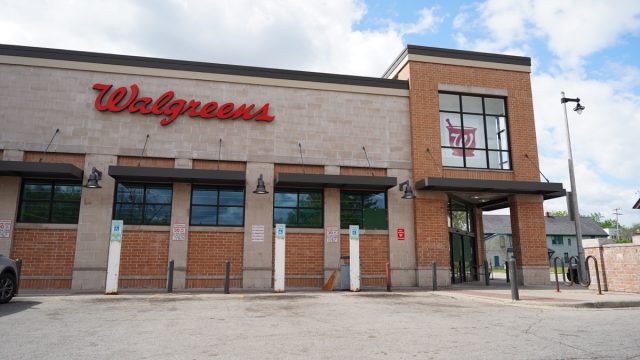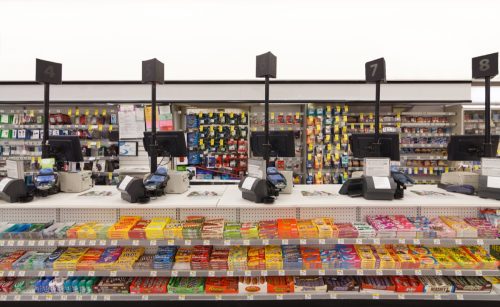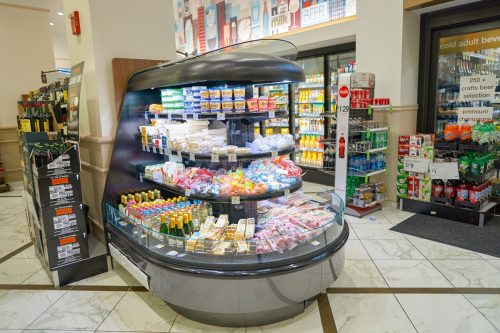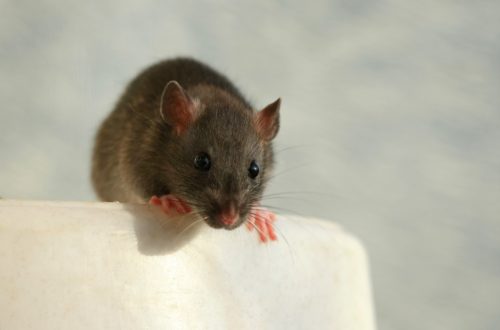Walgreens Store Stops Selling Any Food—Will Others Follow?

Drugstores provide people with a place to pick up their prescriptions, but they also cater towards convenience in other ways. After all, many of us can’t resist picking up a candy bar or drink when we’re already at Walgreens. But if this is your go-to stop for a quick snack, you might run into problems. Read on to find out why one Walgreens store just stopped selling food and if others are likely to follow suit.
READ THIS NEXT: Walgreens Store Bans Purses and Bags to Prevent Shoplifting—Will Others Follow?
A Walgreens store has stopped selling food.

Some consumers may be turning up to their local drugstore just to find that food sales have been shut down. A Walgreens location in Mill Valley, California, has suspended the sale of food, candy, and beverages, KRON4 reported. An employee at the California Walgreens told the local news outlet on March 7 that workers had been instructed not to sell food items from their store but were not told why or how long the suspension will last.
Inside the store, shoppers can see shelves stocked full of food covered with signs warning them that the products cannot be purchased right now, according to KRON4. “All food, candy, beverage sales are temporarily suspended,” the signs read.
The suspension is the result of a rodent problem.

Food, candy, and beverage sales have been suspended at the Mill Valley Walgreens because of a rodent problem, according to the local news outlet. This does not appear to be a chain-wide suspension, as other Walgreens stores in the Bay Area are still selling food items as normal, KRON 4 reported.
“The health and safety of our patients, customers, and team members is our top priority,” a Walgreens spokesperson told Best Life in a statement. “A pest issue impacting our store located at 227 Shoreline Hwy. in Mill Valley, California, requires urgent and aggressive remediation.”
RELATED: For more up-to-date information, sign up for our daily newsletter.
Pests like this can contaminate food products.

No one wants to think about rodents running around on the food we’ve bought. But it’s not just a nuisance—it’s a major health concern. As the Centers for Disease Control and Prevention (CDC) explains, rats and mice have the ability to carry many different diseases and these can spread to people who eat food that has been contaminated by an infected rodent.
“Food products that have been exposed to filth, like rats, mice, and other rodents, can make you or your family members sick,” the U.S. Food and Drug Administration (FDA) confirms.
According to the agency, food products in plastic and paper containers should be thrown away if they come in contact with these types of pests. Cans or jars that have appear dented, crushed, swollen, rusted, cracked, or punctured should also be discarded to prevent people from eating it. “Do not give away or donate these items because you could be putting other people’s health at risk,” the FDA warns.
Other stores have experienced problems with rodents in the past.

The Walgreens spokesperson told Best Life that despite the suspension of food sales, the Mill Valley store and pharmacy are still open. “We have temporarily closed affected areas of the store for a thorough and comprehensive cleaning,” they said. “We thank patients and customers for their patience as we focus our efforts on eliminating the problem.”
But this isn’t the first time a Walgreens store has faced similar concerns. In Dec. 2022, one of the retailer’s locations in St. Paul, Minnesota, was forced to close for three weeks in order to allow pest control the ability to address a rodent issue, the St. Paul Pioneer Press reported. And in 2021, a Walgreens in Princeton, New Jersey, was also temporarily banned from selling food by the city’s health department due to a pest problem. “Any time there is a rodent infestation where food is sold or stored, there is always a public health concern,” Princeton Health Officer Jeffrey Grosser told CentralJersey.com.
A rat infestation is also what caused the notable 2022 shutdown of a Family Dollar distribution center in West Memphis, Arkansas. Following a FDA investigation at the center revealed more than 1,000 rodents and animal droppings in “areas where human food is routinely stored,” the retailer had to temporary close more than 400 stores throughout six states and recall certain products shipped from the facility to locations. And then a few months afterwards, Family Dollar also chose to close the West Memphis facility permanently in light of the overwhelming rodent problem.
CORRECTION: Walgreens responded to Best Life with a statement shortly after the time of publication. An earlier version of this story did not reflect their response.